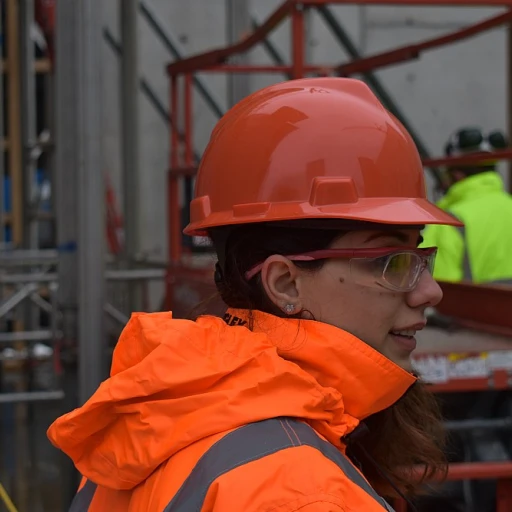
What determines the timeframe of a background check
Factors Shaping How Far Background Checks Go Back
When it comes to background checks, one of the most common questions is: how many years do these checks cover? The answer isn’t always straightforward. Several factors influence the timeframe, or lookback period, for background checks. Understanding these factors helps both candidates and employers know what to expect during the pre employment process.
- Type of background check: Criminal background checks, employment background checks, and credit reporting each have different standard lookback periods. For example, criminal history checks often go back seven to ten years, while credit history checks may report up to seven years of information, depending on state and federal laws.
- Nature of the position: Roles involving vulnerable populations or sensitive information, such as healthcare, may require more extensive checks. For instance, a 16-panel drug screen is sometimes part of the process for positions with higher safety or regulatory requirements.
- State and federal law: State laws and federal regulations, like the Fair Credit Reporting Act (FCRA), set limits on how far back certain records can be reported. Some states, such as North Carolina, have specific restrictions on reporting criminal convictions or credit history beyond a certain number of years.
- Type of record: Not all records are treated equally. For example, non-conviction records may have a shorter reporting period than criminal convictions. Some states prohibit reporting arrests that did not lead to convictions after a certain period.
Employers must also consider industry standards and their own policies when deciding how far back to check. In some industries, checks back ten years or more are common, especially for positions with significant responsibility or access to sensitive information. However, legal compliance is always a key consideration, as discussed in the next section.
Ultimately, the depth of a background check depends on a mix of legal, regulatory, and practical factors. Candidates should be aware that the information uncovered can vary widely depending on the type of check, the state, and the employer’s requirements. For those seeking more details on drug screening as part of background checks, see this guide on what you need to know about the 16-panel drug screen.
Legal restrictions and compliance considerations
Understanding the Legal Framework for Background Checks
When employers conduct a background check, they must navigate a complex web of federal and state laws. These legal requirements shape how far back a check can go, what information can be reported, and how candidate rights are protected. The Fair Credit Reporting Act (FCRA) is the primary federal law regulating employment background checks, but state laws can add more restrictions or requirements.- FCRA and Reporting Limits: The FCRA sets a seven-year reporting limit for certain negative information, such as civil suits, judgments, and arrest records that did not result in convictions. However, criminal convictions can often be reported indefinitely unless state law says otherwise.
- State Variations: Some states, like California and New York, limit the reporting of criminal records to seven years, even for convictions. Others, such as North Carolina, may allow checks back further, depending on the type of role and salary offered.
- Ban the Box and Fair Chance Laws: Many states and cities have adopted "ban the box" laws, which restrict when employers can ask about criminal history during the hiring process. These laws aim to give candidates a fair chance before their criminal background is considered.
- Credit Reporting: When employment background checks include credit history, both federal and state laws dictate what can be accessed and reported. Some states prohibit the use of credit reports for most employment decisions.
Industry standards and employer policies
How Employers Shape the Scope of Background Checks
Employers play a significant role in determining how deep a background check goes. Their policies, industry standards, and risk tolerance all influence what information is reviewed and how far back the checks look into a candidate’s history.- Lookback Periods: Many employers set their own lookback periods for criminal background checks, often guided by state laws or federal regulations. While some industries only check back seven years, others—especially those in finance or healthcare—may review up to ten years or more of criminal records and employment history.
- Types of Checks: The scope can include criminal history, credit reporting, employment background, and even education verification. For example, credit history checks are common in positions involving financial responsibility, but not every state allows them for employment decisions.
- Industry Standards: Certain sectors have stricter requirements. For instance, federal background checks for government jobs often demand a more thorough review than private sector roles. Healthcare and education employers may also require more extensive criminal and employment history checks to comply with federal and state laws.
- Ban the Box and Compliance: "Ban the box" laws in many states restrict when employers can ask about criminal convictions, impacting how and when criminal background information is considered during pre employment screening.
The role of technology in accessing historical records
Technology’s Impact on Accessing Historical Records
Technology has changed how background checks are performed, especially when it comes to accessing criminal records, employment history, and credit reporting data. In the past, background check companies relied heavily on manual searches through paper files at courthouses and state agencies. Today, digital databases and online portals have made it much faster to check back several years into a candidate’s history.
- Digital Court Records: Many states now provide online access to criminal records, making it easier for employers to verify criminal convictions and check criminal history across multiple jurisdictions. However, not all states have fully digitized their records, which can cause delays or gaps in the information available.
- Automated Employment Verification: Employment background checks benefit from electronic verification systems that pull data from payroll providers and previous employers. This speeds up the process, but accuracy depends on the quality of the data entered by employers over the years.
- Credit Reporting Advances: Credit history checks are now almost instant, thanks to integration with major credit bureaus. This is especially important for roles where financial responsibility is a concern, but federal and state laws such as the FCRA limit how far back credit checks can go and what information can be reported.
Despite these advances, technology cannot always overcome challenges with older records. Some criminal background checks still require manual searches, especially for records older than ten years or in states with limited digital infrastructure. In addition, data accuracy remains a concern, as outdated or incorrect information can persist in digital systems. Employers must balance the speed and convenience of technology with the need for thorough, compliant checks that respect federal and state laws.
As technology continues to evolve, it’s likely that access to historical records will become even more streamlined. However, the effectiveness of these tools still depends on the quality of the underlying data and the legal restrictions in place to protect candidates’ rights.
Challenges with older records and data accuracy
Why Older Records Are Harder to Access and Verify
When employers conduct a background check, especially for pre employment screening, the accuracy and availability of older records can be a real challenge. Many states and federal laws set specific lookback periods for reporting criminal history, credit history, and employment background. For example, the Fair Credit Reporting Act (FCRA) limits most credit reporting agencies from disclosing certain negative information older than seven years, except for criminal convictions, which can sometimes be reported indefinitely depending on state law.
- State variations: Some states, like North Carolina, restrict how far back background checks can go for criminal records, while others allow checks back ten years or more. This patchwork of state laws means employers must stay updated on local regulations.
- Record retention policies: Courts and agencies may not keep records indefinitely. Older criminal records or employment history might be archived, lost, or destroyed, making it difficult to verify a candidate’s complete background.
- Data accuracy: As records age, the risk of errors increases. Older criminal background or credit reporting data may be incomplete, contain outdated information, or lack updates about expungements or changes in convictions.
Employers also face compliance issues when accessing older records. Federal background check requirements and state laws, including ban the box initiatives, often limit the use of certain historical information to prevent discrimination. This means that even if a criminal record from many years ago is found, it may not be legally reportable or relevant for employment decisions.
Technology, as discussed earlier, has improved access to digital records, but not all historical data has been digitized. Manual searches in physical archives are still sometimes necessary, which slows down the process and increases the chance of missing information. For employers, balancing thoroughness with compliance and accuracy is an ongoing challenge when dealing with older records in background checks.
Emerging trends in background check practices
Shifting Practices and New Regulations in Background Checks
The landscape of background checks is evolving rapidly, shaped by changes in technology, federal and state laws, and shifting employer expectations. Here are some of the most notable trends influencing how employers approach criminal background and employment history checks today:- Shorter Lookback Periods: Many states are revisiting the length of time employers can consider criminal convictions. While some states still allow checks back ten years or more, others are limiting the lookback period, especially for non-violent offenses. This is partly due to growing concerns about fairness and reintegration for candidates with older criminal records.
- Ban the Box and Fair Chance Laws: More states and cities are adopting "ban the box" policies, which delay questions about criminal history until later in the hiring process. These laws aim to give candidates a fairer shot at employment, and they require employers to focus on qualifications before considering criminal background information.
- Greater Emphasis on Data Accuracy: Employers and background check providers are under increasing pressure to ensure the accuracy of criminal records and credit reporting. Mistakes in reporting can have serious consequences for candidates, so there is a push for better verification and more transparent dispute processes.
- Integration of Technology: Advances in digital recordkeeping and automation are speeding up the background check process. However, challenges remain with older records, especially in states like North Carolina, where some historical data is still paper-based or inconsistently digitized.
- Compliance with FCRA and State Laws: The Fair Credit Reporting Act (FCRA) continues to set the baseline for employment background checks, but state laws are increasingly adding their own layers of regulation. Employers must stay updated on both federal and state requirements to avoid legal pitfalls.
- Focus on Relevance: There is a growing trend toward only considering criminal convictions that are directly relevant to the job in question. This shift is reflected in both new laws and employer policies, aiming to balance workplace safety with second-chance opportunities for candidates.













